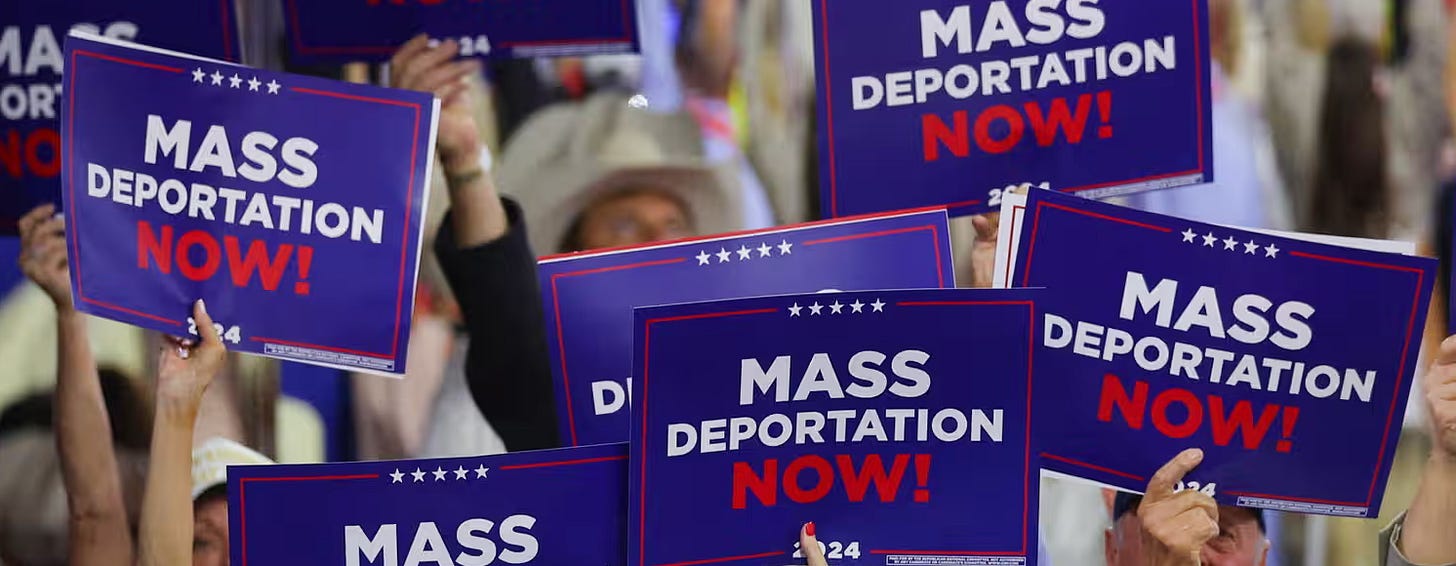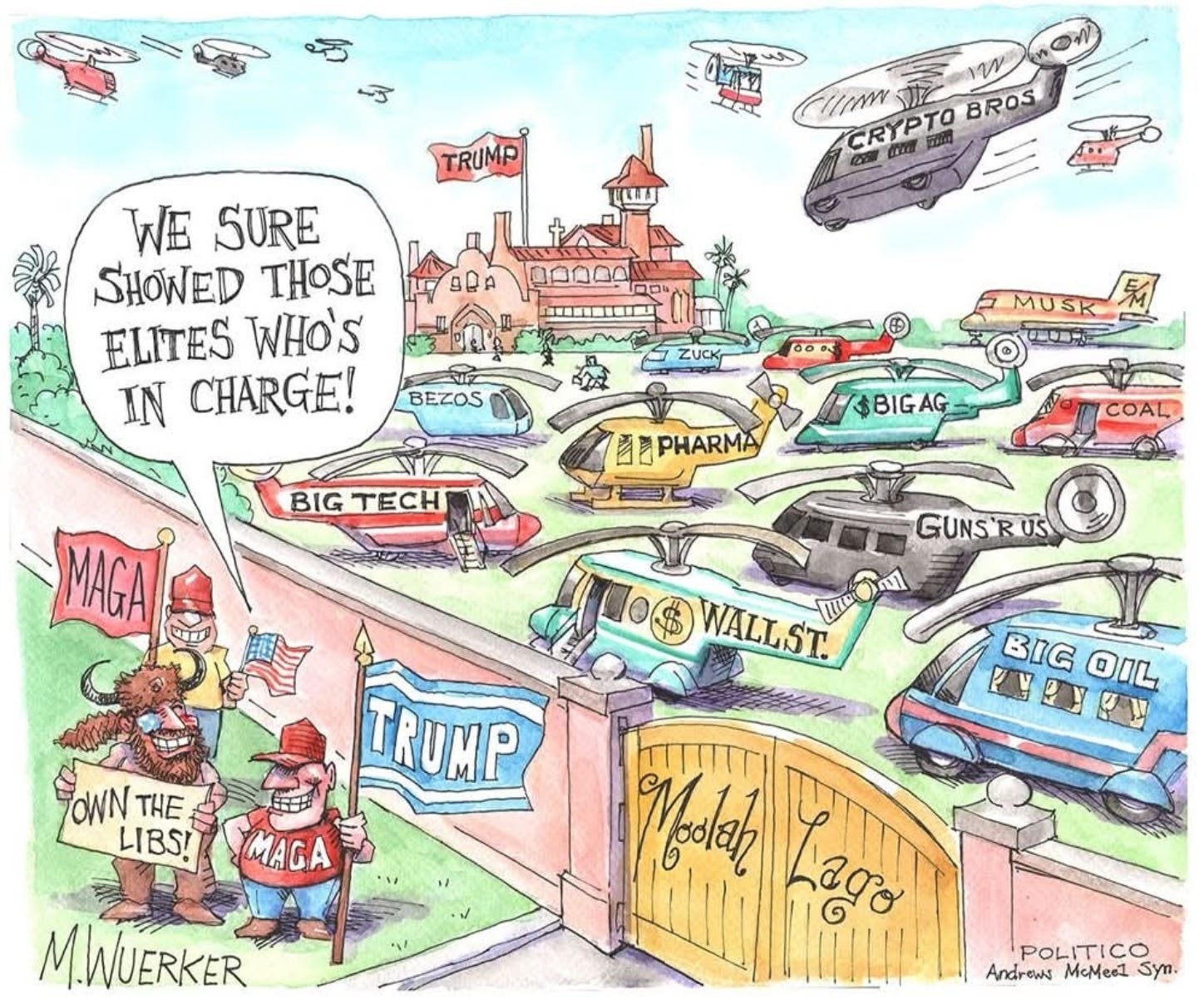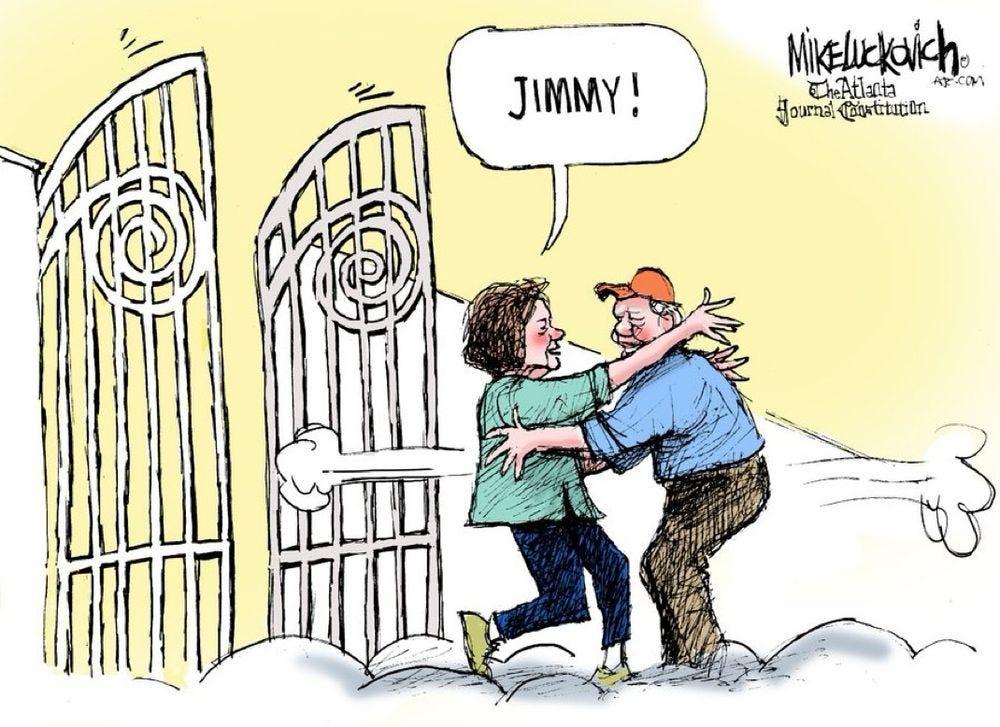‘Wait, Did We Vote For This?’
This past week gave us a glimpse of a potentially crucial splinter within the GOP, even before its figurehead has been inaugurated or its narrow majority in the House was sworn in.

It took a while, but eventually people in Britain who in 2016 had supported Brexit began to realise that the outcome of their vote was perhaps out of step with why they may have cast it. At last summer’s UK general election, unfulfilled expectations, combined with a clown-show of personality politics guaranteed the Conservatives would be unceremoniously turfed out to begin an as-yet-uncertain rebuild.
But that was after 14 years in office – arguably an unsustainable period for any party and any political system that relies on the allegiance of its citizens.
This past week gave us a glimpse of a potentially crucial splinter within the Republican party, even before its incoming figurehead has been inaugurated or its narrow majority in the House was sworn in. And the issue that caused the early outbreak of infighting is both the defining thread of Donald Trump’s campaign and the one that drove much of Britain’s momentum towards Brexit: immigration.
CNN called the row “the most significant example yet of the president-elect favoring powerful elements in his new MAGA coalition over his base’s anti-immigrant DNA that he twice tapped in his rise to power.”
“The boiling holiday feud over H-1B visas exposed new fissures across Trump’s broadened support base and reflected the contradictions between his populist ideology and the self-interests of many of the key players in his refashioned inner circle.”
That the President-elect would eventually side with the world’s richest man was probably predictable. That he did it so early and so clearly in the face of the hardline ‘America First’ arguments of his supporters for prioritising homegrown jobs over foreign labor will undoubtedly echo through his second term in office, making the process of governing more difficult, if not straight away, then surely down the road. (It also seems like Elon Musk’s increasing involvement in European politics, with both the AfD in Germany and the Reform Party in the UK, may be unsurprisingly destabilizing).
Even attempts by the President-elect and some allies to connect immigration policy to the tragic terror attack in New Orleans on New Year’s day seemed more desperate than usual.
David Brooks at the New York Times perhaps awkwardly likened the genuine issue at the heart of the dispute to “why the New York Mets are spending over $700 million to sign Juan Soto. You could field a team with all native-born players, but you couldn’t hope to compete with the best in the world.”
“This is not a discrete one-off dispute. This is the kind of core tension you get in your party when you do as Trump has done: taken a dynamic, free-market capitalist party and infused it with protective, backward-looking, reactionary philosophy. We’re going to see this kind of dispute also when it comes to economic regulation, trade, technology policy, labor policy, housing policy and so on.”
I guess we’ll eventually see how the folks who voted for Trump – like those the Washington Post spoke to in New Castle, Pennsylvania – think how much their votes actually counted.
“He [Trump] is more attuned to the needs of everyone instead of just the rich,” Lori Mosura, 55, said on a recent afternoon. “I think he knows it’s the poor people that got him elected, so I think Trump is going to do more to help us.”
“Elon Musk and Vivek Ramaswamy — whom Trump has chosen to lead a new nongovernmental advisory panel, the “Department of Government Efficiency” — have said they want to trim $2 trillion from the government’s annual budget, a cut that some experts say could be accomplished only by slashing entitlement programs. Trump’s pick for White House budget director was a key architect of Project 2025, a plan drawn up by conservatives to guide his second term that calls for steep cuts to programs such as food stamps. And GOP leaders in Congress and Trump advisers are considering significant changes to Medicaid, food stamps and other federal aid.”

*
Burning Down The House?
House Speaker Mike Johnson won re-election in a messy but at least relatively straightforward – compared to recent contests for the position – first-ballot vote; yet the Republican caucus still found it difficult to coalesce behind him without the intervention of the incoming President. Following a swift rule change, starting the process of removing a Speaker now requires nine votes, not just the single one that led to the pantomime of Kevin McCarthy’s historic ouster.
After last week’s federal funding chaos, which in part created Johnson’s precarious position in the run-up to the vote, the Speaker laid out a series of promises on spending cuts, but at the end of the day his tenure will be measured solely by his usefulness to the incoming administration.
After swearing in the members of the 119th Congress, Johnson’s first significant role will be to preside over certification of November’s election results. But as Ben Jacobs at New York Magazine writes, the transactional nature of the incoming President means that, really, regardless of what the Speaker says, it’s “Trump’s House”.
“Freshman Brian Jack of Georgia, a longtime Trump aide, thought the electoral mandate Trump received in November was “very much a motivating factor for us to get organized, get operative as quickly as possible.”
“That factor won’t exist again. Trump needs his election certified only once, something that couldn’t be done until there was a Speaker. Trump will have only one honeymoon period immediately after taking office that he can use to pass a legislative program, and a prolonged leadership fight would have been a major obstacle. The support Johnson received to win the gavel was not an endorsement of the Speaker; it was an endorsement of Trump — he holds office only as long as it is in Trump’s interest. Without his aid to woo dissidents, Johnson will not have the necessary support to survive a challenge to his speakership.”
With Johnson pledging a “return to fiscal sanity” whatever that might mean, he may, or may not, be interested in two significant stats from this week: defaults on US credit card loans hit the highest level since the wake of the 2008 financial crisis – with an increase of 50 per cent this past year. Meanwhile, homelessness in the US soared in 2024.
*
Drawing A Blank
Ann Telnaes, a Pulitzer Prize-winning Washington Post editorial cartoonist since 2008, resigned from the paper this week after her cartoon (draft shown above) depicting the paper’s proprietor Jeff Bezos and other media owners genuflecting before the incoming President, was spiked. The paper said the decision not to publish the cartoon was because of “repetition”.
It comes after the Post reportedly lost more than 250,000 subscriptions in the wake of its controversial decision not to endorse a candidate in November’s Presidential election.
*
Jimmy Carter passed away last weekend at the age of 100. The 39th President’s final journey began yesterday in his home state of Georgia and will culminate in a service at the National Cathedral in Washington DC before returning to his hometown of Plains, GA, to rest alongside former First Lady, Rosalynn.


*
After an exhausting – but wonderful – disjointed family holiday season (and a winter cold to go along with it, naturally) this was the first of these columns I’ve taken longer than a week to write. But in the current political landscape, even a couple of days past seven means there’s just far too much happening to concentrate the mind. Apologies; I’ll aim not to stray beyond a week in future.
Very best wishes to you and yours for the coming year.
*






